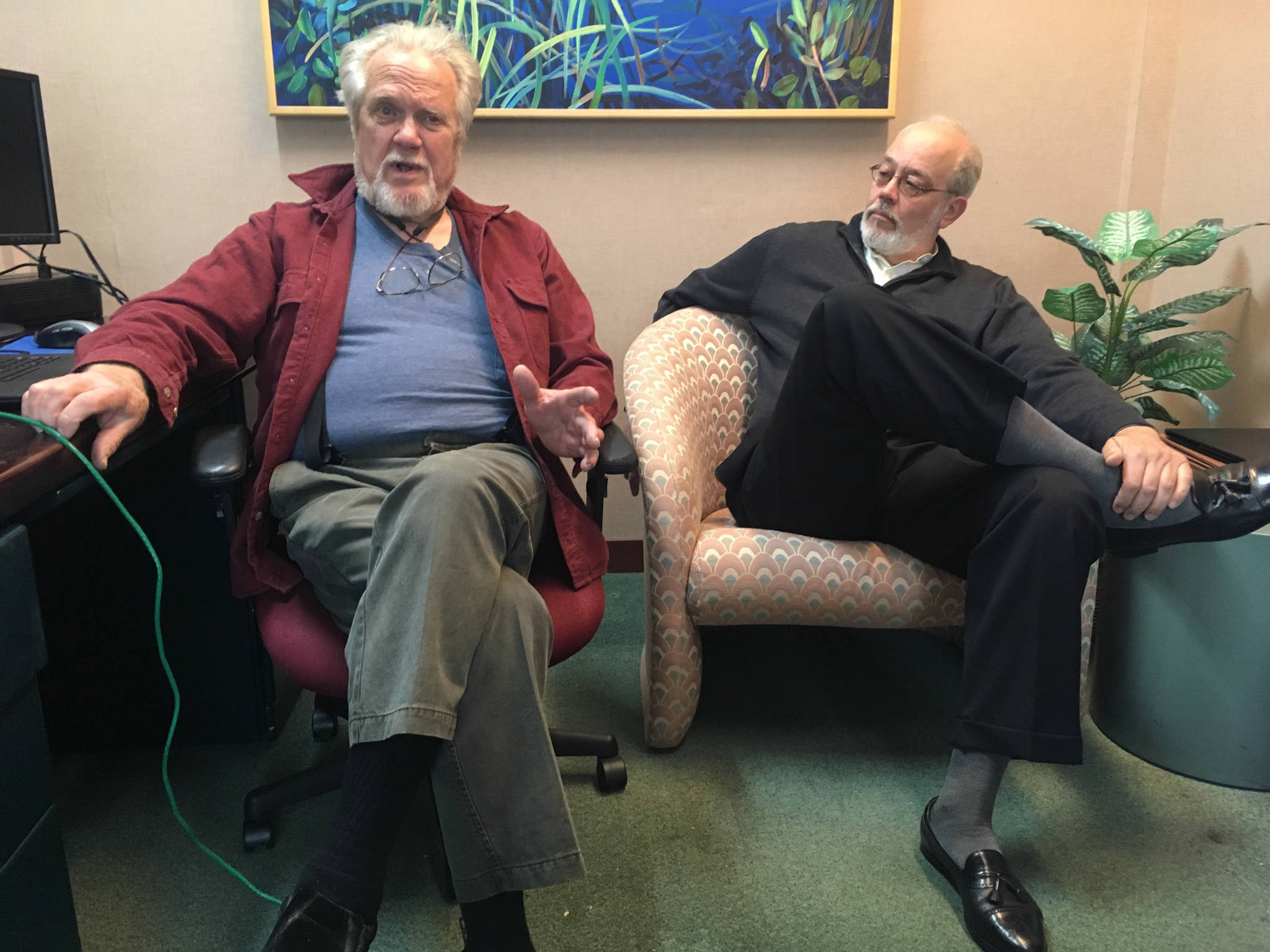In May 2018, I filed a lawsuit alleging that House Bill 331 is unconstitutional, in that it authorizes $1 billion of bonded debt by the State of Alaska, in violation of the constitutional restrictions on debt.
Earlier this month, Superior Court Judge Jude Pate upheld the state’s motion to dismiss the suit. This decision was described in a closely reasoned 44-page opinion. The judge relies on a number of precedent opinions from cases in the record, as well as an overarching theme of similar cases of state debt as practiced and adjudicated nationwide.
This conflict is playing out on at least three levels. One is the interpretation of the law as tracked through previous cases. A second is the public policy as expressed by the action of the Legislature and the long-term consequences of HB 331. (In a full page of his opinion, Judge Pate forthrightly acknowledges these issues.) A third is the organization of government and the way it works. The newspaper is not the place to argue the merits of Pate’s legal pathway. However, this is a constitutional case and there are several points to be made:
Pate states: “… it is not the role of this court to make economic policy judgments or second guess the wisdom of the legislature’s financial decisions …”
[Why two Juneau men are standing in the way of the Legislature, Gov. Walker and a billion-dollar debt]
In the definition of the three branches of government, I find:
“The courts, given the sole power to interpret the Constitution and the laws, can uphold or overturn acts of the Legislature … this is part of their relationship of checks and balances …”
I therefore find that Pate has abdicated the primary role of the judicial branch of which he is a stellar part. If the judicial branch doesn’t have the power to stop the Legislature from creating unconstitutional law, why would there ever be a constitutional challenge, of which there have been many? On his first page, the judge is telling us he won’t use the power on which this case depends.
As far as “legislative wisdom” is concerned, the Legislature has no wisdom. What the Legislature has is ideologically driven political power subject to the winds of chance. In the search for wisdom, I pray to find some of it residing with the judiciary.
[Volatile oil market prompts conservative forecasts]
A second piece of the puzzle of having this case dismissed is that it was dismissed based on something called Civil Rule 12(B)(6). This one is simple, and states that a case can be dismissed if the plaintiff “fails to state a claim upon which relief can be granted.” Since the relief requested was clearly spelled out, the state’s success in using a transparently inapplicable rule remains a mystery.
In this vein, Pate applied what feels very much like a double standard of accepting testimony from the parties. He accepted everything supplied by the state in support of its motion to dismiss. But because it was not yet a trial or a motion for judgment, the judge declined to accept much of the evidence I supplied. Pate sailed past the notion of dismissal, went on ahead to make a constitutional determination on the merits, and then got back to the dismissal with logic that has nothing at all to do with a “failure to state relief.” It is essentially impossible to track this pathway.
In defending HB331 and deciding that the debt it allows is not “state debt” and “passes constitutional muster,” language and debt structures are used that did not exist at the time the constitution was written. One of the points of this case is that the authors of the constitution could not describe things they had never heard of as unconstitutional. In allowing this debt structure to be defined as constitutional, Judge Pate has essentially set himself up as a committee-of-one, and written a constitutional amendment that flies in the face of acknowledged constitutional intent regarding debt.
We are watching the abhorrence of debt and the conservative fiscal stability intended by the framers be discarded by pubic guardians under the pressure of state budget stress, a situation that has been predicted for 30 years.
• Eric Forrer is a resident of Juneau. My Turns and Letters to the Editor represent the view of the author, not the view of the Juneau Empire.

